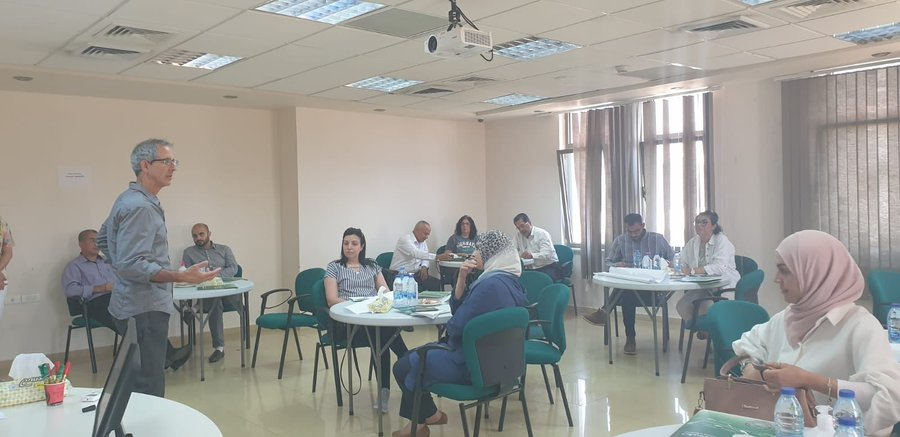Building Capacity in Data Literacy for Human Rights Actors
In preparation for its training course on data literacy for human rights workers and activists, the Center for Continuing Education (CCE) at Birzeit University held a consultative meeting on Wednesday, July 14th, 2021 to validate the training design. Attendees included members of civil society, human rights advocates and NGOs, researchers and data experts.
Invitees were asked to brainstorm and provide a summary on the nature of data they deal with, how it is collected, analyzed and used or applied in their work, in addition to potential opportunities and aspects of data usage in the future.
Upon analyzing the feedback and based on the discussions, the group revealed a number of insights and observations:
- Data exists in different formats and is collected from different sources and for different purposes. In addition to secondary sources (reports, online databases, the web and social networks), data is also collected directly through field work and surveys.
- Data collection and storage does not follow a standard process or procedure. Most data collected for human rights advocacy is rather narrative and lacks rich details and metadata.
- Collected or acquired data is usually not in a user-friendly format. Data may require cleaning and further processing or visualization to be understood, especially by decision makers and people with limited data skills.
- There is a disconnection or lack of harmony among people who work with data at different stages in the organization or within a team. Common language of communication is lacking in most cases.
- Data is not fully utilized. Most collected data ends into seasonal reports or for seasonal action.
- Participants were aware of data issues including potential bias and lack of transparency in AI algorithms as well as disinformation.
- There is, almost always, a dark side of data. In addition to the informative side, data can spread misinformation (ex. fake news) or violate basic rights like privacy.
- There are intrinsic biases in data collection which can overshadow important aspects. One example is focusing on food production while ignoring workers' occupational health and malnutrition.
- There is a technical gap in almost all human rights institutions. Data workers are not fully aware of the data potential or lack the technical skills to put data into actionable usage.
- Participants are partially aware of the need for data governance. They talked about privacy, rights and ethics and could easily relate to policies and regulatory frameworks.
- Invitees emphasized the need for, and value of, a training program in data literacy for human rights actors. They were keen on asking about the training outputs and to what extent they could go into the training course after a brief overview of the program.
As part of its projects on data for development and responsible data and AI, with funding from IDRC, CCE is planning data literacy training programs in a number of domains, including human rights and social justice. The training is designed to empower human rights researchers, workers and activists with the ability to understand, analyze and use data with confidence, and to make data-driven decisions for the public good in an ethical and responsible fashion.
The program, with 30-40 contact hours, will apply best practices through use cases and examples related to human rights and social justice. It will cover data basics and potential, data acquisition and cleaning, data exploration, analysis, visualization and storytelling. A common theme will be data governance focusing on data management, ethics and responsible use of data and AI.
By the end of the program, trainees should be able to recognize the full data cycle and the data potential. They will be able to develop their own data case and lead its implementation. Those willing to go further can join the advanced data science learning journey offered by the Center for more advanced audiences.

